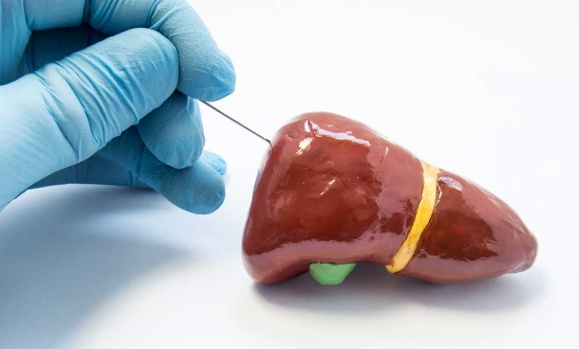Stories
» Go to news mainExperience with compressed gelfoam plugs in children during liver biopsies and other IR procedures: a retrospective single‑center case series

Abstract
PURPOSE:
To analyze the experience using compressed gelfoam plugs (CGPs) in children during liver biopsies and other interventional procedures.
MATERIALS AND METHODS:
This was a single-center, retrospective, consecutive case series of 477 various pediatric interventional radiology procedures using CGPs (January 2012 to December 2016) performed on 397 children (209 males, 188 females; median age, 7 years [range, 9 days-17.8 years]; median weight, 18 kg [range, 2.7-141 kg]). Of 477 procedures, most (n = 371) were liver biopsies, 98 were biopsies of other organs, and 8 were non-biopsy procedures. Analysis focused on liver biopsies.
RESULTS:
Of liver biopsies, a median of 2 CGPs were used per procedure, and the mean drop in hemoglobin was -0.36 g/dl (-3.0% change). Thirty-seven mild, 8 moderate, 2 severe, and 1 life-threatening (an anaphylaxis to CGP) adverse events (AEs) occurred. Analysis of liver biopsies with AEs showed significant association between number of passes, cores, and focal-type lesions (unadjusted logistic regression: P = .007, P = .022, P = .028, respectively) and age, weight, and number of passes (adjusted multiple logistic regression: P = .006, P = .032, P = .046, respectively). Technical problems relating to CGP deployment were noted in 5 (1%), without any AEs.
CONCLUSIONS:
CGPs were used in a wide variety of procedures and organs in children. There was 1 life-threatening AE resulting from the rare risk of anaphylaxis caused by the gelfoam-containing plug. After liver biopsies, transfusion was required in 2/371 (0.5%) procedures, 1 related to pre-biopsy anemia (0.25%).
Recent News
- Dr. Abraham receives CAIR Award
- Thank you to everyone who joined us for the 30th anniversary Radiology Research Day on May 8th!
- Nova Scotia’s Lung Screening Program expanding to Cape Breton, eastern mainland
- Donor‑supported nuclear medicine technology attracts top medical talent to the QEII
- Building Critical Skills at the Dalhousie Physician Leadership Workshop for Women in Radiology
- CAR/CSTR Practice Guideline on CT Screening for Lung Cancer
- CAR/CSACI Practice Guidance for Contrast Media Hypersensitivity
- CAR Practice Guideline on Bone Mineral Densitometry Reporting: 2024 Update
